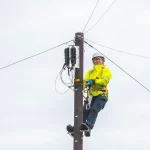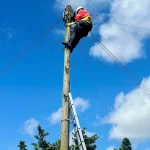UK Government Takes All Credit for Virgin Media and BT Broadband Efforts
A new progress update from the government’s Department for Culture, Media and Sport (DCMS) has slyly taken all the credit for the private sectors own commercially funded efforts to improve superfast broadband access around the United Kingdom.
The update notes that 22 out of 44 Local Broadband Plans (LBP) around the UK have now moved into the “delivery phase” (i.e. they’ve all signed contracts with BT), which under the Broadband Delivery UK (BDUK) framework aims to make superfast broadband ISP connectivity available to 90% of people in each local authority area by the end of 2015 (the last 10% will only get at least 2Mbps).
Advertisement
The news represents reasonable progress but there’s still a risk that some of the schemes might not reach the same stage by the current July 2013 deadline, which is incidentally already representative of a 6 month delay after last year’s debacle with EU funding approval (here).
Ed Vaizey, Communications Minister, said:
“Today’s contract signing in West Sussex marks a milestone in our efforts to bring superfast broadband to those areas around the UK where it is currently unavailable. With 50 per cent of projects now in delivery phase, businesses and individuals will very shortly be enjoying all the benefits that high speeds offer.”
But so far less than a handful of the BDUK supported projects, excluding separate state aid supported efforts like the one in Cornwall, have actually begun the rollout itself and as yet this has had no tangible impact whatsoever on the number of people who can connect to a superfast broadband service.
In other words all the progress that has been made to date has broadly come from the private sector and commercial investment by BT, Virgin Media, KC and not to mention the many smaller altnet ISPs, such as B4RN, Hyperoptic, Gigaclear and CityFibre, which have been busy building new infrastructure without the assistance of government investment.
However you wouldn’t know that was the case from reading the government’s announcement, which unashamedly appears to take credit for everybody else’s work. Make of this what you will and take note that the update is sub-headed “Roll-out passes halfway mark” (roll-out on BDUK projects are 50% done? Well no.. sadly not).
Advertisement
Progress on Broadband Transformation (DCMS Update)
As a result of the work now taking place, speeds will be dramatically higher and superfast fixed and mobile broadband will be widespread. Average speeds will have at least tripled since 2010, and an additional 10 million more homes and businesses will have access to superfast broadband.
These changes will reinforce the UK’s position as a leading digital economy and will be a major driver of local jobs and national growth. The Government’s own programmes will support delivery in the parts of the country that will not otherwise be reached by the private sector and will support our cities to become digital hubs for businesses and consumers.
Results already achieved:
•Average speeds have more than doubled since May 2010, from 5.2Mbps to 12.0Mbps in November 2012
•Superfast broadband connections are getting faster, with speeds increasing from 35.8Mbps in May 2012 to 44.6Mbps in November 2012
•100,000 more homes and businesses are getting superfast broadband availability each week
•In June 2012 superfast coverage had reached 65% of UK premises, up from 45% in 2010.
•The proportion of broadband connections with superfast speeds of 30Mbps or higher more than doubled last year, up from 5% in November 2011 to 13% in November 2012.
•50,000 superfast connections are currently being taken up per week
Broadly speaking the government, aside from supporting some pro-BT regulation through Ofcom, hasn’t actually assisted much with any of those “results“. It’s a bit like cheating in class by copying your friends work. It must give a nice sense of achievement, before later a brief feeling of guilt because you didn’t actually achieve it yourself.
Mark is a professional technology writer, IT consultant and computer engineer from Dorset (England), he also founded ISPreview in 1999 and enjoys analysing the latest telecoms and broadband developments. Find me on X (Twitter), Mastodon, Facebook, BlueSky, Threads.net and Linkedin.
« UK ISP Vivaciti Offer Unlimited Superfast FTTC and FREE Activation


















































Comments are closed